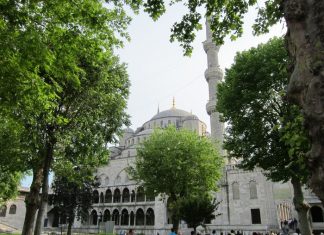One of the most remarkable acts of patriotism comes from a Greek barber living in New York. When he died, he left his entire estate to the University of Athens. He was not an educated man, but he was proud of the classical traditions of his country. His gift was small—only $150, the proceeds from selling his barber shop equipment, razors, and bottles of hair tonic—but it meant more than many large donations because it was all he had. In spirit and dedication, his contribution surpassed even the wealth of famous donors like Carnegie or Rockefeller.
The Need for Better Roads
While Greeks abroad contributed to education and culture, domestic infrastructure was often neglected. Many streets and roads in Athens, apart from the main avenues, were in poor condition and often difficult to pass. Improvements in this area would benefit both citizens and visitors, supporting commerce and daily life Spiridon Louis and the Marathon Victory.
The University of Athens
The University of Athens, founded around 1835, follows the German educational model. Many professors are graduates of German universities, and the German language is commonly heard alongside Greek in the university halls. The university owns significant property that generates revenue, and several academic chairs have been generously endowed by private individuals. The institution plays a central role in educating Greek youth and preserving the country’s intellectual heritage.
The National Library
The National Library of Greece is celebrated as one of the most beautiful modern buildings in the world. It was funded by the Vallianos brothers, Greek grain merchants with business in Odessa and the Black Sea ports. A marble statue of one of the brothers stands proudly in front of the library, honoring their generosity and dedication to learning.
The National Museum and Other Gifts
The National Museum was a gift to the Greek people from George Averof, a cotton merchant in Egypt. He also founded a military school and a model reformatory for children, showing his commitment to both education and social welfare.
The Zappeion, an exposition building for temporary art and industry exhibitions, was donated by the Zappas brothers, Greek grain merchants living in Romania. It has become a central venue for cultural and industrial events in Athens.
The Academy of Sciences, considered one of the most beautiful modern structures in Europe, and the Royal Observatory were both established and endowed by Baron Sina, a Greek banker based in Vienna. These buildings demonstrate the significant impact of Greek philanthropy abroad in shaping Athens as a center of culture, science, and education Rose Festival Tour.
The Spirit of Greek Giving
The contributions of Greeks living abroad reflect a deep love for their homeland and a desire to advance education, science, and culture. From a humble barber in New York to wealthy merchants in Europe, these acts of generosity have left a lasting legacy that continues to benefit the people of Greece today.








